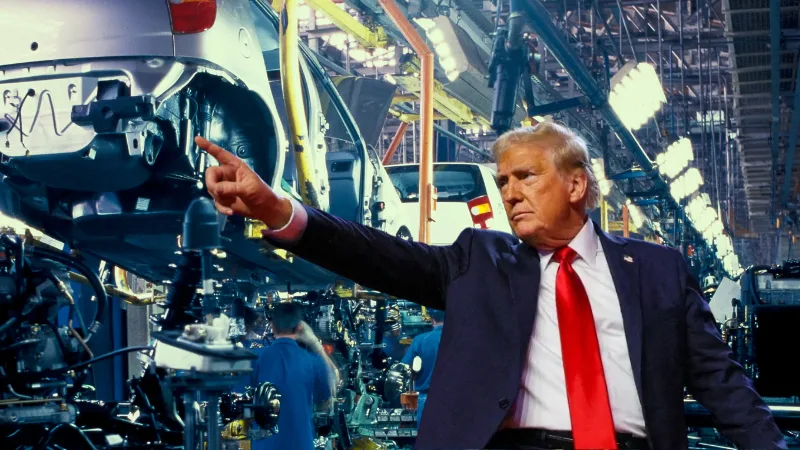In a week that has already been tough for Tesla shareholders, the news cycle took another dramatic turn: reports surfaced that the company’s board of directors has begun searching for a potential replacement for CEO Elon Musk. The claim, first reported by The Wall Street Journal and later covered by outlets like The Daily Beast, sent shockwaves through markets and social media alike.
But is there any truth to these reports? Or is this just another overhyped media narrative?
In this article, we break down what was reported, how Tesla’s leadership has responded, and what the implications are for investors and the future of the electric vehicle (EV) titan.
The Report That Sparked the Firestorm
According to The Wall Street Journal and subsequently amplified by The Daily Beast, unnamed sources claimed that Tesla’s board of directors had begun quietly reaching out to executive search firms earlier this year. The motivation: explore potential successors to Elon Musk amid growing concerns about the company’s financial performance and Musk’s attention span.
The reports highlight three core issues:
- Plunging Financial Performance – Tesla’s profits in Q1 2025 dropped a staggering 71%, the steepest quarterly decline in years. This was attributed to softening demand for EVs, pricing pressures from Chinese competitors, and an expensive pivot toward robotics and AI integration.
- Musk’s External Commitments – Board members reportedly expressed frustration over Musk’s time-consuming involvement with President Trump’s administration, particularly in his role guiding the Department of Government Efficiency (DOGE).
- Stock Performance – Tesla shares are down more than 25% year-to-date, triggering anxiety among both retail and institutional investors.
The Daily Beast quoted sources as saying:
“The board began asking serious questions about Musk’s availability and long-term plans after it became clear he was spending more time advising the Trump administration than focusing on Tesla’s turnaround.”
Source: The Daily Beast
Tesla’s Leadership Pushes Back
Tesla’s board did not stay silent for long.
Robyn Denholm, Tesla’s Chairwoman, issued a rare public statement denying the claims outright. In an interview with Business Insider, she said:
“The board is not, and has never been, looking to replace Elon as CEO. These reports are categorically false and misleading.”
You can read her full statement here.
Elon Musk also fired back. In a post on X (formerly Twitter), he referred to the Wall Street Journal article as a “deliberately false article” and accused media outlets of trying to manipulate Tesla’s stock price through coordinated hit pieces.
Meanwhile, Reuters confirmed that Denholm had doubled down on the board’s “complete confidence in Musk’s leadership,” suggesting there is no formal search or internal movement toward a leadership shake-up.
The Real Tensions Underneath
Even with the denials, the story has legs—because there’s more smoke than anyone at Tesla seems willing to admit.
According to Axios, internal tensions within Tesla’s leadership have been mounting for months. Musk’s deepening ties to Washington, particularly his influence over federal cost-cutting programs under President Trump, have left key stakeholders questioning whether he’s still “all in” on Tesla.
One anonymous executive said:
“When Elon is focused, he’s unstoppable. But lately, his attention is everywhere but Tesla—and that’s not sustainable in this market.”
This isn’t the first time questions have arisen about Musk’s bandwidth. Between Tesla, SpaceX, X (formerly Twitter), xAI, Neuralink, The Boring Company, and now his role in the Trump administration, it’s fair to ask: how many hours can one man truly give?
Investor Anxiety Is Growing
For investors, the concern isn’t just about leadership optics—it’s about tangible outcomes.
- Revenue and Earnings Pressure: Tesla’s revenues in Q1 2025 were $17.6 billion, down from $23.1 billion in Q1 2024. The company missed both top- and bottom-line estimates for the second straight quarter.
- Demand Challenges: Tesla has slashed prices across nearly all of its models, and its market share in Europe and Asia continues to erode due to growing competition from BYD, NIO, and even legacy automakers like Volkswagen and Toyota.
- Innovation Fatigue: Musk’s vision for humanoid robots (Optimus) and robotaxi networks is inspiring, but Wall Street wants execution, not imagination.
As a result, Tesla’s market cap has shrunk by over $230 billion from its peak in early 2024. And while long-term investors remain loyal, the growing uncertainty about who’s steering the ship is leading many to reconsider.
Could a Leadership Transition Actually Happen?
While the board denies any formal CEO search is underway, some analysts believe these public rebukes may be more about damage control than reality.
Dan Ives, Managing Director at Wedbush Securities and a long-time Tesla bull, told Axios:
“I don’t think the board is actively trying to oust Elon, but I do think they’re sending a message: Tesla needs 100% of Elon, not 40%. And if that doesn’t happen, all bets are off.”
The issue is compounded by Tesla’s reliance on Musk’s brand. He’s not just a CEO—he’s a movement. The moment he’s out, many fear Tesla’s innovation engine and cult-like investor following could vanish overnight.
Still, there’s precedent for strong leadership transitions in tech. Apple post-Steve Jobs. Microsoft post-Ballmer. The key, experts say, is timing and communication.
What Should Investors Do Now?
Here’s what you should consider if you’re holding Tesla stock or thinking about buying the dip:
Watch for Clarity in Q2 Earnings
If Tesla misses again and Musk continues to devote attention elsewhere, the board may have no choice but to act—even if only to add a co-CEO or designate a clear successor.
Follow Insider Activity
Keep an eye on insider selling or buying, particularly from Musk, Denholm, or CFO Vaibhav Taneja. Significant selling could be a red flag.
Assess Competitive Positioning
Tesla is still a dominant player in EVs, but its innovation edge is thinning. Look into how its software, battery technology, and vertical integration are holding up versus Chinese and European competitors.
Don’t Discount Political Ties
Musk’s role in the Trump administration could be a blessing or a curse depending on the policy environment. For example, regulatory breaks or EV tax credits could benefit Tesla—or not.
Expect Volatility
Until there’s full transparency on Musk’s priorities, expect Tesla stock to be highly reactive to headlines, even rumors. Investors may want to hedge with options or diversify across other tech or auto names.
Final Thoughts: Elon Musk Is Still CEO—But for How Long?
The Tesla board may not be actively ousting Elon Musk today, but the narrative has shifted. Confidence is no longer a given—it’s a performance metric. And with Tesla facing stiff competition, economic headwinds, and innovation skepticism, Musk’s full attention has never been more critical.
As of now, the denials are holding. But if financials continue to worsen and Musk keeps spreading himself thin, investors should not be surprised if the conversation around leadership resurfaces in a more official capacity.
Until then, Tesla remains one of the most fascinating—and polarizing—companies in the world. And Elon Musk? He’s still the star of the show. For now.





